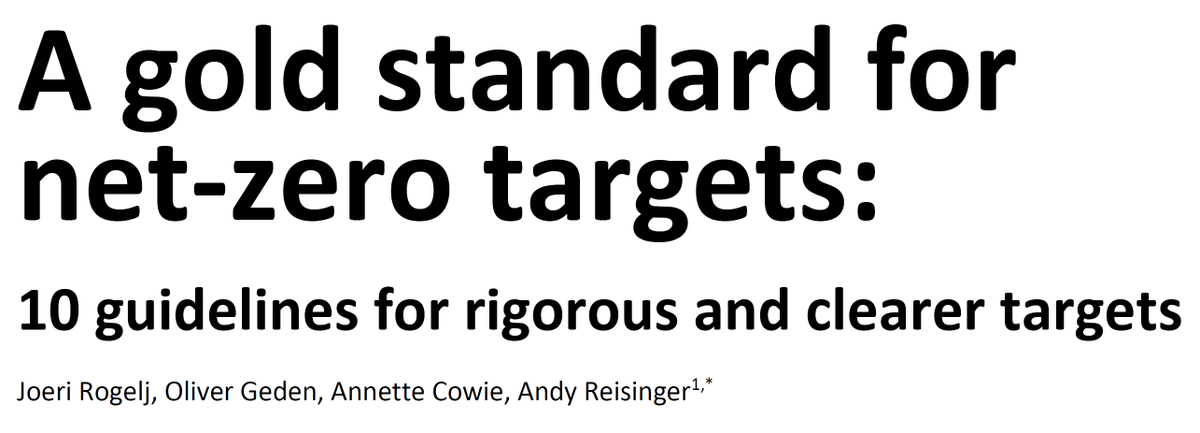
"Net-zero emissions targets are vague: three ways to fix"
In a new @Nature piece we explain how countries & companies can set rigorous, fair and transparent net-zero targets.
Thread (1/n)
With @Oliver_Geden, @CowieAnnette & @ReisingerAndy
(@NatureNews)
nature.com/articles/d4158…
In a new @Nature piece we explain how countries & companies can set rigorous, fair and transparent net-zero targets.
Thread (1/n)
With @Oliver_Geden, @CowieAnnette & @ReisingerAndy
(@NatureNews)
nature.com/articles/d4158…
Countries and companies around the world are declaring net-zero targets - all in their own way, often in vague terms, and mostly without considering what it means for others or where it leads to. (2/n)
The inadequacy of these individual targets lulls the world into missing the global climate goals of the @UNFCCC Paris Agreement. (3/n)
We provide 3 ways to fix these vague targets.
Net-zero targets should cover aspects related to:
- their scope
- their adequacy and fairness
- a roadmap towards net-zero and beyond
(4/n)
Net-zero targets should cover aspects related to:
- their scope
- their adequacy and fairness
- a roadmap towards net-zero and beyond
(4/n)

How can this be implemented?
In the supplementary information to the @Nature piece, we provide 10 detailed guidelines for countries and companies to follow. (end)
nature.com/magazine-asset…
In the supplementary information to the @Nature piece, we provide 10 detailed guidelines for countries and companies to follow. (end)
nature.com/magazine-asset…

And finally:
a longer thread on some of the context and technicalities 👇
a longer thread on some of the context and technicalities 👇
https://twitter.com/JoeriRogelj/status/1371793848662364163
• • •
Missing some Tweet in this thread? You can try to
force a refresh





